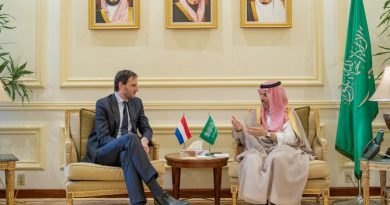UAE holds talks with Taliban to run Kabul airport – foreign diplomats
Dubai (Reuters) – The United Arab Emirates has held talks with the Taliban to run Kabul airport, going up against Gulf rival Qatar in a diplomatic tussle for influence with Afghanistan’s new rulers, according to four sources with knowledge of the matter.
UAE officials have held a series of discussions with the group in recent weeks to discuss operating the airport that serves as landlocked Afghanistan’s main air link to the world, the foreign diplomats based in the Gulf region told Reuters.
The talks demonstrate how countries are seeking to assert their influence in Taliban-ruled Afghanistan even as the hardline Islamist group largely remains an international pariah and its government not formally recognised by any country.
The Emiratis are keen to counter diplomatic clout enjoyed there by Qatar, according to the sources who declined to be name due to the sensitivity of the matter.
The Qataris have been helping run the Hamid Karzai International Airport along with Turkey after playing a major role in evacuation efforts following the chaotic U.S. withdrawal in August, and have said they are willing to take over the operations.
Yet the Taliban has not yet formalised an arrangement with Qatar, the four diplomats said.
A senior Emirati foreign ministry official said the UAE, which previously ran Kabul airport during the U.S.-backed Afghan republic, “remains committed to continuing to assist in operating” it to ensure humanitarian access and safe passage.
Abu Dhabi also aided recent evacuation efforts.
The Taliban and Qatari authorities did not respond to requests for comment.
Two of the diplomats said the Taliban has also sought financial assistance from the UAE, though they added it was not clear if this was related to the airport discussions.
The Emirati foreign ministry official, Salem Al Zaabi, director of international security cooperation, did not respond to a question on whether the UAE was considering providing financial help to the Taliban.
Airport Intelligence
One key issue that’s still to be resolved between the Taliban and potential airport operators is who would provide security at the site, the four diplomats said. The Taliban say they do not want foreign forces in the country following their return to power after two decades of war.
Still, Qatari special forces are presently providing security within the airport’s perimeter, the diplomats added, while Taliban special forces were patrolling areas outside.
So far countries have been reluctant to formally recognise the Taliban’s government, accusing the group of backtracking on pledges to uphold the rights of women and minorities.
Yet Qatari officials have urged greater international engagement with the Taliban to prevent impoverished Afghanistan from falling into a humanitarian crisis. Gulf states have also voiced concern that the U.S. withdrawal would allow al Qaeda to regain a foothold in Afghanistan.
While there is little commercial benefit for any operator, the airport would provide a much-needed source of intelligence on movements in and out of the country, according to the four diplomats, who said that since the withdrawal many countries have lacked real-time information.



